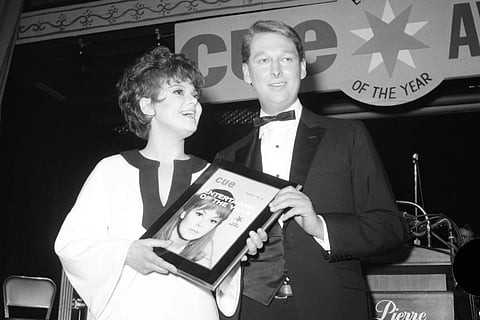‘Freaky Friday’ actor Barbara Harris dies
She was also a Tony award-winning stage actor

Barbara Harris, award-winning star of stage and screen, has died at the age of 83.
The actor, who had left the film industry in the 90s, died of lung cancer in Scottsdale, Arizona, where she had lived for many years.
Harris was known for roles in Robert Altman’s Nashville, Francis Ford Coppola’s Peggy Sue Got Married and Alfred Hitchcock’s Family Plot. She also played mother to Jodie Foster in 1976’s Freaky Friday and to John Cusack in 1997’s Grosse Pointe Blank.
She was nominated for a best supporting actress Oscar for her role alongside Dustin Hoffman in 1971’s Who Is Harry Kellerman and Why Is He Saying Those Terrible Things About Me? She also received four Golden Globe nominations.
“I used to try to get through one film a year, but I always chose movies that I thought would fail, so that I wouldn’t have to deal with the fame thing,” Harris said in a 2002 interview. “I turned down Alfred Hitchcock when he first asked me to be in one of his movies.” She eventually starred as a psychic in his final film, the comedy thriller Family Plot.
Harris was also a Tony award-winning stage actor who won best actress trophies for her roles in the musical comedies On a Clear Day You Can See Forever and The Apple Tree. She was viewed as a improvisational pioneer, having been involved in the Compass Players, the first ongoing improv troupe in the US. She went on to be part of Chicago’s Second City theatre which spawned many successful performers from Bill Murray to Tina Fey.
But she quit the stage for Hollywood in the 60s. “Who wants to be up on the stage all the time?” she said. “It isn’t easy. You have to be awfully invested in the fame aspect, and I really never was. What I cared about was the discipline of acting, whether I did well or not.”
After her final screen performances in Dirty Rotten Scoundrels and Grosse Pointe Blank, she left acting and decided to teach. “I don’t usually mention that I have been in movies, because I’m afraid people will say, ‘Well, I don’t watch black-and-white films,’” she said in 2002. “Most people don’t know who I am.”
In the earlier part of her career, she worked in the Playwrights Theatre Club alongside Ed Asner, who has paid tribute to her.
“I’m bereft,” he told the Chicago Sun-Times. “I just felt she was the greatest thing in the world. She had a great sense of humour, if you connected with her, and was a joy to work with.”



